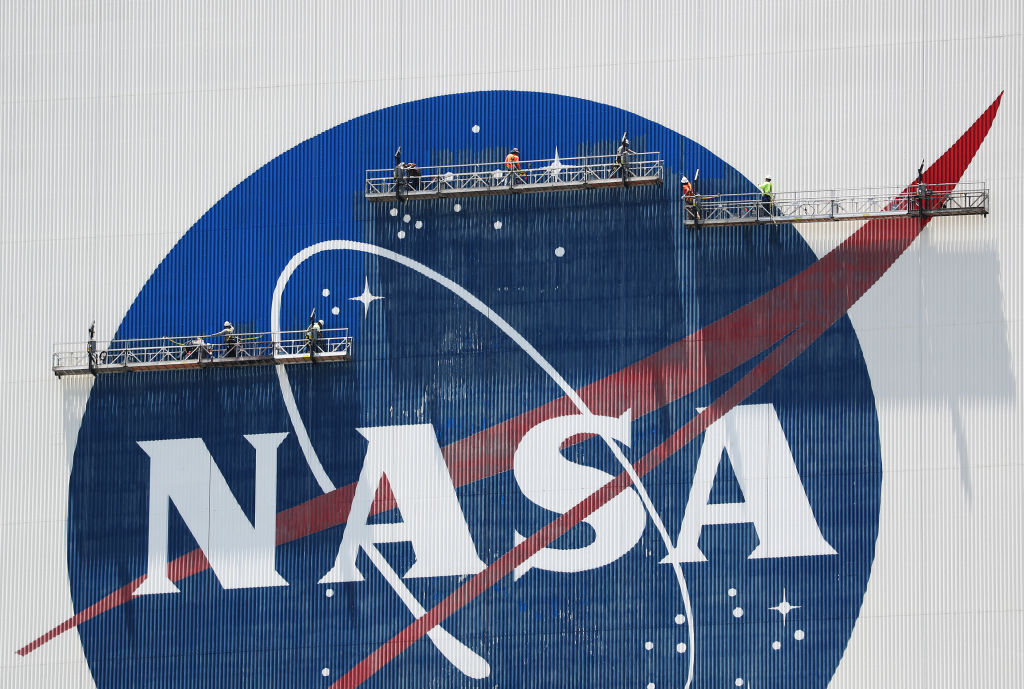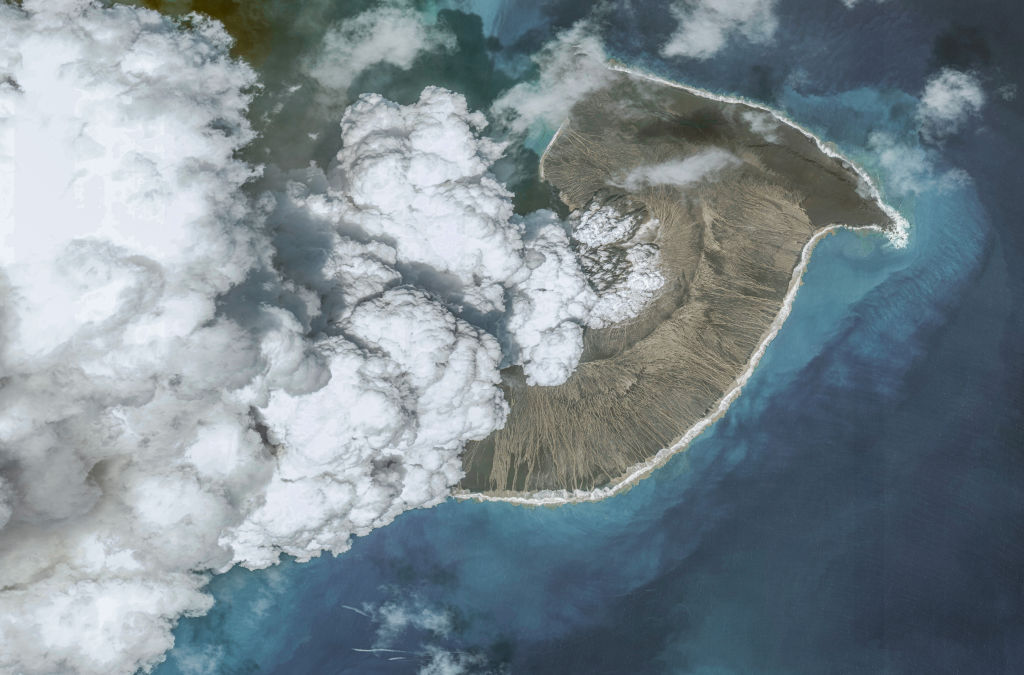At an Aug. 14 news conference, NASA and other experts proclaimed that, according to “clear science,” current record-high temperatures are attributable to human activity. Yet NASA did not present any scientific evidence to demonstrate a connection between current warm temperatures and greenhouse gas emissions, and ignored the massive non-anthropomorphic impact of last year’s record-breaking under-ocean volcano. Is NASA just another Biden/Harris social justice agency spewing unscientific climate fears to accrue more power?
A press release made plain the agency’s position: “’NASA data confirms what billions around the world literally felt: temperatures in July 2023 made it the hottest month on record. In every corner of the country, Americans are right now experiencing firsthand the effects of the climate crisis, underscoring the urgency of President Biden’s historic climate agenda,’ said NASA Administrator Bill Nelson. ‘The science is clear. We must act now to protect our communities and planet.’”
The same release incorporated a similar conclusion by NASA Goddard Institute for Space Studies Director Gavin Schmidt: “This July was not just warmer than any previous July – it was the warmest month in our record, which goes back to 1880. The science is clear this isn’t normal. Alarming warming around the world is driven primarily by human-caused greenhouse gas emissions.”
These two statements share an obfuscation: The science is very much not “clear.” They both rely on a presumption that all planetary warming is caused by anthropomorphic climate change and thus violate the fundamental scientific-statistical maxim that “connection does not prove causation.” No scientific evidence suggests that there is an anthropomorphic connection between this heat wave and climate change — let alone proof of causation.
NASA in Political Lockstep

(Photo by Joe Raedle/Getty Images)
There is a pattern of labeling fuzzy climate-crisis claims as “clear” science. If temperatures dropped to record lows this winter and some conservatives pointed to that as evidence against climate change, the left would dismiss it as an aberration. Now there is a heat wave, and the left screams that the sky is burning. This double standard of extrapolating anecdotal evidence to conjure broad ideological certainties — while impugning the credibility of anyone who does so in chilly times — is evident in NASA’s current posture.
The lockstep dogmatic coordination between Joe Biden and Bill Nelson has been consistent since the president appointed him to make over the polluting NASA into a magic climate-solution techno-agency. Over-specialized technocrats and out-of-touch academics have overtaken common sense and accountability, and NASA, too, has fallen.
Right out of the political gate, in April 2021, NASA gushed about its environmental prowess and what a savior of the world the Biden/Harris team had become. It praised POTUS for specific policies, which include adding NASA to his White House Climate Task Force, committing to the Artemis program (staying on schedule for moon landings in 2024 and 2025 despite the heat), putting a person of color on the moon, and displaying a moon rock at the Oval Office. But what does this have to do with the (environmental) price of tea in China? How does polluting the ecosystem with more moon landings save the universe from global warming?
NASA claims it seeks “green aerospace technology,” and that its observations from space will assist in responding to global warming. Yet it is hard to imagine a solar-powered rocket launch to the moon. What is NASA’s expertise and strategy to reduce warming or pollution, and what is the carbon footprint of the Artemis program?
Volcano Impact

(Photo by Maxar via Getty Images)
The likely cause of the current heat records is a record-setting under-ocean 2022 volcano eruption that NASA tracked as environmentally impactful but now excludes from any scientific consideration in the latest “clear, incredible science” that informs the agency’s “critical policymaking decisions.” If NASA is to credibly speak to planetary warming, surely it must express a clear scientific opinion about not only record-breaking heat waves but also record-breaking volcanoes. Yet it seems to have ignored completely a momentous meteorological event in its recent claims of an anthropomorphic climate crisis: Hunga Tonga-Hunga Ha’apai.
In August 2022, NASA reported that the eruption “blasted an unprecedented amount of water into the atmosphere”:
“When the Hunga Tonga-Hunga Ha’apai volcano erupted on Jan. 15, it sent a tsunami racing around the world and set off a sonic boom that circled the globe twice. The underwater eruption in the South Pacific Ocean also blasted an enormous plume of water vapor into Earth’s stratosphere – enough to fill more than 58,000 Olympic-size swimming pools. The sheer amount of water vapor could be enough to temporarily affect Earth’s global average temperature.
“Th[is] not only injected ash into the stratosphere but also large amounts of water vapor, breaking all records for direct injection of water vapor, by a volcano or otherwise, in the satellite era … The excess water vapor injected by the Tonga volcano … could remain in the stratosphere for several years. This extra water vapor could influence atmospheric chemistry, boosting certain chemical reactions that could temporarily worsen depletion of the ozone layer. It could also influence surface temperatures … since water vapor traps heat [emphasis added].”
However, Hunga Tonga-Hunga Ha’apai was many times more powerful than NASA assessed at the time. One study concluded: “[D]ue to extreme altitude reach of the eruption, volcanic plume circumnavigated the Earth in only one week and dispersed nearly pole-to-pole in three months. The observations provide evidence for an unprecedented increase in the global stratospheric water mass by 13% as compared to climatological levels … The unique nature and magnitude of the global stratospheric perturbation by the Hunga eruption ranks it among the most remarkable climatic events in the modern observation era.”
These clear scientific facts don’t jibe well with NASA’s unequivocal attribution of current warming events to anthropomorphic causes. The agency watched an epic volcano with negligible climate comment, then raised a histrionic ruckus over a heat wave as human-caused without weighing the possible impact of Hunga Tonga. So much for “clear, awe-inspiring science.” Hunga Tonga’s absence from NASA’s assessment suggests the agency is not as good at looking down at the planet as it is looking up to ideologues for direction.






